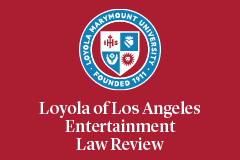Abstract
As noted by the U.S. Supreme Court in Ward v. Rock Against Racism (1989), calls for music censorship are at least as old as Plato’s Republic. Attempts to punish artists for their music continue across the globe to the present day. In the United States, these attempts have been thwarted by key Court precedents on incitement (Brandenburg v. Ohio, 1969), true threats (Watts v. United States, 1969), profanity (Cohen v. California, 1971), and obscenity (Miller v. California, 1973). None of these precedents dealt with music, but after Southeastern Promotions, Ltd. v. Conrad (1975), courts have applied the tests in those rulings to find substantial First Amendment protection for musical artists, including in cases involving Ozzy Osbourne, Judas Priest, 2 Live Crew, and Tupac Shakur. In cases against musicians for alleged threats, profanity, incitement, and obscenity, the Court’s tests have collectively been a positive development for the thriving of musical expression in the United States. State power over musical expression restricts the creative autonomy of, and political critiques by, musical artists and it deprives listeners of the intellectual and emotional experiences that songs provide. Maintaining the application of the Court’s standards to music, and expanding their protections, should remain First Amendment imperatives, as doing otherwise would embolden those in power to censor music that is critical of them or that is by artists from minority communities and viewpoints.
Recommended Citation
Eric T. Kasper,
Explicit Lyrics: The First Amendment Free Speech Rulings That Have Protected Against Music Censorship In The United States,
43 Loy. L.A. Ent. L. Rev. 173
(2023).
Available at: https://digitalcommons.lmu.edu/elr/vol43/iss3/1


